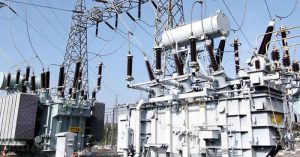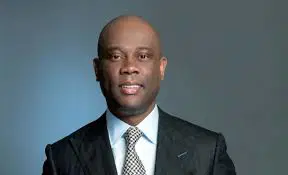Nigerians were on Tuesday plunged into darkness following another collapse of the national power grid.
The PUNCH reports that since January 2024 till date, the grid has collapsed 10 times.
Within one week in October, the grid collapsed three times with its attendant blackouts, sparking reactions from Nigerians.
Checks by our correspondent confirmed yesterday that the grid lost power generation around 1:50 pm.
As of 1pm, power generation was 2,711 megawatts. At 12pm it was 3,631MW.
Earlier, power generation peaked at 3,934.77MW around six o’clock in the morning.
However, between 2 pm and 3 pm, hourly generation dropped to 0.00MW. The 22 power generation plants on the grid lost power supply at the time of the incident.
The Transmission Company of Nigeria confirmed the development, saying “The national grid experienced a partial disturbance at about 1;52 pm on 5th November 2024.“
TCN spokesperson, Ndidi Mbah, said, “This followed a series of lines and generators trippings that caused instability of the grid and, consequently, the partial disturbance of the system.“
Mbah said data from the National Control Centre revealed that a part of the grid was not affected by the bulk power disruption.
“TCN engineers are already working to quickly restore bulk power supply to the states affected by the partial disturbance. Presently, bulk power supply has been restored to Abuja, at 2.49 pm, and we are gradually restoring to other parts of the country.
“We sincerely apologise for every inconvenience this may cause our electricity customers,“ she said.
The PUNCH learnt that the power outage caused by the grid collapse affected both the north and the south.
Ikeja DisCo of Lagos, in a notice to its customers, said, “Dear esteemed customer, please be informed that we experienced a system outage today affecting supply within our network. Restoration of supply is ongoing in collaboration with our critical stakeholders. Kindly bear with us.”
Also, the Abuja Electricity Distribution Company in a post on its Official X handle, said, “Dear Valued Customer, please be informed that the power outage being experienced is due to a system failure from the national grid at 1:52 pm to our franchise areas. Rest assured, we are working with the relevant stakeholders to restore power as soon as the grid is stabilised. Thank you for your understanding.”
Ibadan DisCo reported, “Kindly note that a system disturbance occurred today, Tuesday, 5th November 2024, resulting in power outages across our franchise areas (Oyo, Ibadan, Ogun, Kwara, and Osun regions).
“However, partial power supply has been restored to Osun, Kwara, and Ogun regions. We are working closely with our partners in the value chain to ensure the speedy restoration of power supply to the Oyo and Ibadan regions. We sincerely regret the inconvenience caused by this disruption and appreciate your understanding in this matter.”
The PUNCH observed that hospitals, schools and other businesses were affected by the ugly development which many said has become a norm in the power sector.
The PUNCH reports that some parts of the north where power was recently restored experienced another blackout yesterday following the system collapse.
Damaturu metropolis and its surrounding areas in Yobe State experienced widespread power outages.
It was observed that power supply from Gombe, which normally provides electricity to Damaturu, was disrupted.
A management staff member at the Damaturu PHCN District office, who requested anonymity, stated, “As of now, we have no information regarding the cause of the power outage in Damaturu and its environs. We have contacted the Gombe substation, which supplies power to our area, but they have not been able to provide any information about the grid failure.”
The Jos Electricity Distribution Company announced a power outage in Gombe, Bauchi, Plateau and Benue States.
In a press statement signed by the Head, Corporate Communications, Dr Friday Elijah, the Jos DisCo said the interruption that occurred at about 1:52 pm was a sequel to the loss of power supply from the national grid.
Our correspondent reports that this came barely five days after the blackout occasioned by the destruction of transmission lines was fixed.
The statement partly read, “The current outage being experienced within our franchise states is a result of loss of power supply from the national grid. The loss of power supply from the national grid occurred this afternoon at about 1352 hours of today, Tuesday, 5th November 2024, hence the loss of power supply on all our feeders.”
While seeking patience and understanding, Elijah promised that power would be restored as soon as national grid was restored.
“We hope to restore normal power supply to our esteemed customers as soon as the grid supply is restored back to normalcy,” Elijah added.
S’East in darkness
Similarly, Enugu, Abia, Anambra, Ebonyi and Imo States were plunged into darkness.
The Enugu Electricity Distribution Company as well as the Mainpower Electricity Distribution Limited reported loss of power supply in their networks.
The management of the companies in separate statements blamed the loss of supply to a general system collapse.
In a statement on Tuesday, EEDC’s Head of Corporate Communications, Emeka Ezeh, confirmed the collapse occurred at 1:52 pm on November 5, 2024. As a result, the entire EEDC network l experienced power outages.
The statement partly read: “The Enugu Electricity Distribution Company PLC wishes to inform her esteemed customers of a general system collapse that occurred at 13:52 hours today, 5th November 2024. This has resulted in the loss of supply currently being experienced across the EEDC network.
“Consequently, due to this development, all our interface TCN stations are out of supply, and we are unable to provide services to our customers in Abia, Anambra, Ebonyi, and Imo States.
Sponsored Stories
“We are on standby awaiting detailed information about the collapse and restoration of supply from the National Control Centre Osogbo.”
In the same vein, the management of Mainpower Electricity Distribution Limited informed its customers that the loss of supply across Enugu State was a result of the general system collapse.
“Due to this development, all our interface TCN stations are out of supply, and we are unable to provide services to our customers.
“We are on standby awaiting detailed information about the collapse and assure our customers that supply will be restored once the situation normalises.”
Despite the huge investment in the power sector, the national grid collapsed about 106 times under the administrations of President Bola Tinubu and his predecessor, Muhammadu Buhari.
Recent findings by The PUNCH showed that Nigeria secured about 10 loans worth $4.36bn from the World Bank over the past decade to address key challenges in its power sector.
Although not all 10 World Bank loans have been disbursed completely, the Federal Government and other multilateral agencies have supported the country’s power sector financially.
They have provided billions of naira to revamp the industry but despite these funds, the sector is still struggling, witnessing incessant grid collapses, which has repeatedly plunged the country into widespread blackouts.
It could be recalled that both Buhari and Tinubu, members of the All Progressives Congress, promised to turn things around positively in the power sector.
However, it appears the challenges of the power sector overwhelmed the Buhari administration, which took over former President Goodluck Jonathan of the Peoples Democratic Congress.
Data obtained from different sources, including the Nigerian Electricity Regulatory Commission, showed that the grid collapsed approximately 93 times during the eight-year rule of Buhari, from June 2015 to May 2023.
It was observed that the Tinubu administration carried on with the grid collapse cases, with three of such incidents occurring between June and December 2023.
Nigerians endured more nationwide blackouts on September 14, 2023, when the grid collapsed due to a fire on a major transmission line.
With the 10th collapse happening yesterday, being the fourth in less than a month, Nigerians sought a total overhaul of the sector.
It could be recalled that the Nigerian Electricity Regulatory Commission recently held a stakeholders forum on the situation.
An analyst, Adeolu Taiwo, expressed worry that no comprehensive technical analysis had been conducted to determine the root causes of recent grid collapses aside from the ones caused by vandalisation.
“Specifically, the failure modes of affected equipment remain uninvestigated. However, we can examine the potential impact of concurrent outages on the 33kV network. MY assessment indicates that simultaneous outages on the 33kV network can indeed contribute to system imbalance and instability.
“Factors to consider include network topology and redundancy; load distribution and demand; protection scheme and coordination; system frequency and voltage stability. A detailed investigation is essential to identify the underlying technical reasons for the disturbances and equipment failures,“ Taiwo said.
Meanwhile, the Convener of the Electricity Consumer Protection Advocacy Centre, Princewill Okorie, expressed worry that electricity customers, especially those on estimated billing, continued to pay for darkness as the grid kept collapsing.
“What is the quality of materials used in building the grid? Who are the professionals that are building the grid? How can the grid be stable when transformers are connected to the grid at the weekend and at night without supervision? When substandard materials are being used all over, how can you build a stable grid?”
According to him, the Nigerian Electricity Regulatory Commission and the Ministry of Power pay more attention to the distribution companies and their revenue, ignoring the rights of the consumers, especially in the area of metering.
The Minister of Power, Adebayo Adelabu, has repeatedly said there was a need to have power grids in different regions or states to put an end to the incessant grid collapses.
Adelabu said having multiple power grids in each region and state would ensure stability.
“We keep talking about grid collapse. Grid collapse, grid collapse, whether it’s a total collapse, partial collapse, or slight trip-off. This is almost inevitable as it is today, given the state of our power infrastructure, the infrastructure is in deplorable conditions, so why won’t you have trip-offs? Why won’t you have collapses, either total or partial? It will continue to remain like this until we can overhaul the entire infrastructure. What we do now is to make sure that we manage it,” he said.



